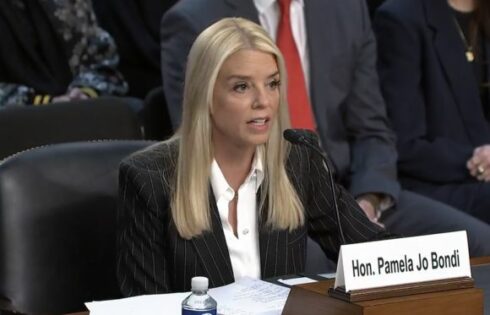Paul Ryan’s integrity is under attack. On multiple occasions, including at the Republican National Convention, the GOP vice-presidential candidate claimed President Barack Obama broke a very specific promise.
Ryan’s hometown of Janesville, Wisc., was home to a General Motors assembly plant for almost a century. The plant was idled in late 2008 and decommissioned the following year.
While campaigning in Wisconsin in 2008, Obama spoke to a large crowd of supporters, many of whom were manufacturers.
“I believe that if our government is there to support you, and give you the assistance you need to re-tool and make this transition, that this plant will be here for another hundred years,” he said. “The question is not whether a clean energy economy is in our future, it’s where it will thrive. I want it to thrive right here in the United States of America; right here in Wisconsin; and that’s the future I’ll fight for as your President.”
According to Ryan, the closure of the plant represents the fracture of a very explicit guarantee made by Obama: “I remember President Obama visiting it when he was first running, saying he’ll keep that plant open. One more broken promise.”
A firestorm erupted in the wake of Ryan’s allegations. Progressive pundits rushed to defend the president, pointing out that the GM plant had been slated for closure in June 2008, seven months before Obama took office. Even ostensibly neutral sources have considered Ryan’s comments dubious at best; Politifact rated his statement blatantly “false.”
Conservatives were quick to counter, taking the opportunity to make note of a recent report issued by the Treasury Department that estimates the U.S. will lose $25 billion as a result of the auto bailouts.
What has been almost completely forgotten, however, in the midst of this hollow partisan spectacle is the larger economic consequences of plant closure and manufacturing job loss. Both Ryan and Obama seem to agree that a plant closing is a negative thing. While such an occurrence may appear devastating at first, there is much more to the story.
The GM plant in Janesville closed—as it should have.
“Higher gasoline prices are changing consumer behavior, and rapidly,” said Rick Wagoner, then-Chairman of GM, in a 2008 news conference. “This is not a spike or a temporary shift, it’s permanent.”
The auto manufacturer failed to adequately anticipate shifts in demand, and as a result, the gluttonous SUVs being produced in Wisconsin were no longer needed.
Of course workers lost their jobs. They suffered and they sacrificed. But by freeing up resources (labor, capital, natural resources) used for the cars, other economic sectors eager to grow and expand were now granted access; a more efficient allocation of resources was achieved.
Today, Janesville is booming in many different sectors, most notably healthcare.
A Sept. 16 article in the Wisconsin State Journal states as much, detailing about 500 new jobs in the city’s expanding health care industry.
This is the essence of free-market process. When entrepreneurs succeed and fail based on their ability to satiate consumer demand in a competitive environment, resources are allocated efficiently and quickly.
It is a fallacy to believe there is a fixed number of manufacturing jobs. Those jobs may be lost to other geographical areas—different cities, different states, different countries—that enjoy a comparative advantage in that particular field. If the Chinese can make a product comparable in quality but cheaper than Americans, that benefits both China and America; we both now have less expensive goods, allowing money to be spent on additional needs and desires.
As we know too well, however, this natural and healthy process of free-market resource allocation was not allowed to take place to its full extent. The federal government intervened and “bailed out” (i.e., nationalized) GM in 2009. To the extent that GM employees kept their jobs, this act was a smashing success.
Yes, GM is still around, and yes, it still employees thousands of manufacturers. But what if it was exposed to the full scrutiny of the market? Many more workers would have become temporarily unemployed, to be sure. Conversely, many more jobs would have been begotten (ultimately more than were lost) due to a more efficient, laissez-faire allocation of resources.
Imagine if the builders of horse-drawn carriages had received bailout money from the government, and were coddled by the federal Leviathan well past their expiration date. It would have been an enormous impediment to forward progress, as resources that could have been utilized by emerging automobile companies would have been artificially trapped in the coffers of a dying industry.
If the free market is allowed to do what it wants to, newer and better jobs will quickly emerge. But if the government stands in the way, acting as some sort of pack-ratting white knight who tries to save, appease, and protect everyone and everything, then resources will forever be inefficiently allocated, and fewer jobs than possible will exist. Belief that government is able to improve economic conditions is untenable; government action can only (and always does) inhibit prosperity.
Obama said this. Ryan said that. Who cares? What matters is that the government has and will continue to decimate the economy because it, by its very nature, prevents an efficient allocation of resources from being achieved.
Fix Contributor Joseph Diedrich is a student at the University of Wisconsin-Madison.
IMAGE: Foot Slogger/Flickr
Click here to Like The College Fix on Facebook.





Please join the conversation about our stories on Facebook, Twitter, Instagram, Reddit, MeWe, Rumble, Gab, Minds and Gettr.